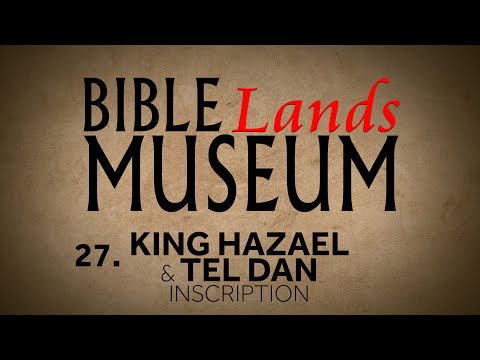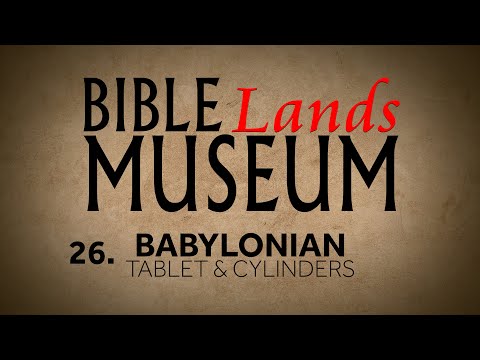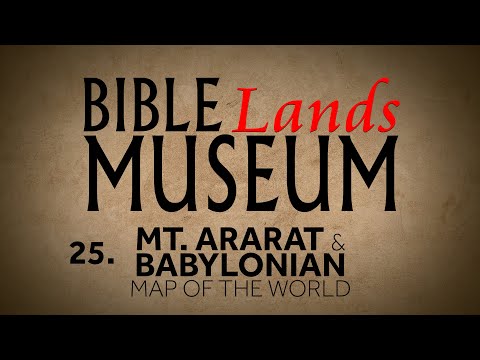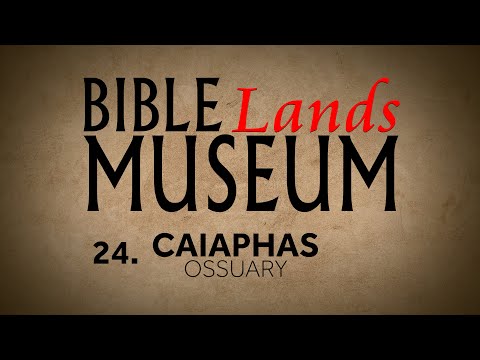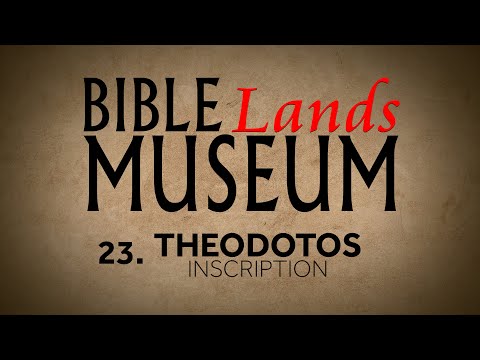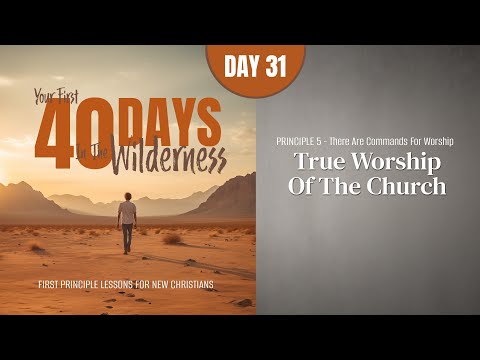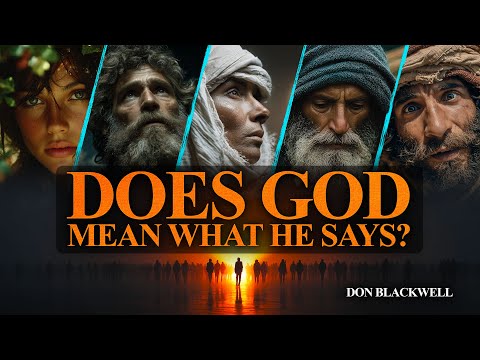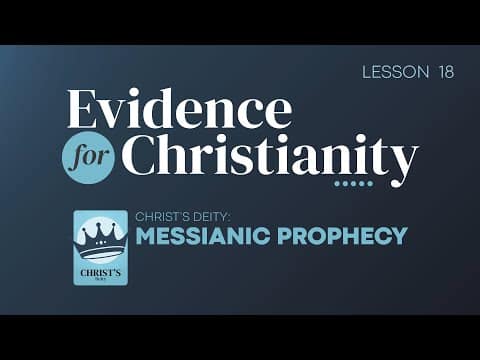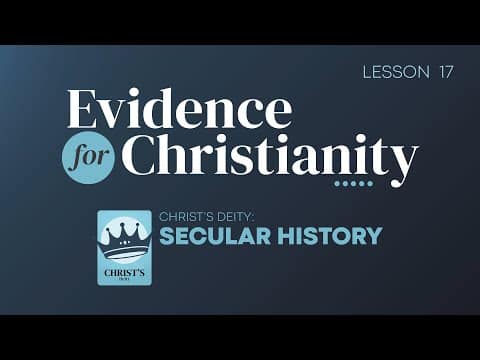Home Bible Critics often say that there is no record of King David outside of the Israel, but an inscription thought to have been made by King Hazael of Syria at Tel Dan mentions the “House of David”. Join Bob Stancell as he discusses the significance of the Tel Dan inscription.
26. Babylonian Tablet and Cylinders | Bible Lands Museum
Home Join Bob Stancell as he discusses 4 different artifacts that verify the Biblical account of Babylon and the Israelites in Babylonian captivity during the time of Daniel.
25. Mt. Ararat: Map of the World | Bible Lands Museum
Home The Bible tells us that after the flood, Noah’s Ark rested in the mountains of Ararat. Join Bob Stancell as he discusses the Mt Ararat and the Babylonian Map of the World and how they relate to the landing site of Noah’s Ark.
24. Caiaphas Ossuary | Bible Lands Museum
Home Discovered in 1990, the Caiaphas Ossuary is believed to hold the remains of Caiaphas, the High Priest during Jesus’ ministry. Join Bob Stancell as he discusses the Caiaphas Ossuary and its significance.
23. Theodotos Inscription | Bible Lands Museum
Home The Theodotos Inscription is a Greek inscription by Theodotos found at a Synagogue. Join Bob Stancell as he discusses the Theodotos Inscription and its significance.
Day 31: True Worship of the Church | Your First Forty Days in the Wilderness
Home God wants us to worship Him. Join Troy Spradlin as he gives an overview of the five acts of worship.
Does God Mean What He Says?
Home The Bible tells us that God is loving, kind, and merciful. People often mistakenly believe that because of these qualities God does not mean what He says concerning consequences for disobedience. Will God follow through with what He has said? Join Don Blackwell as he looks at examples in scripture to see if God means everything He has said.
19. Earth’s Age and Creation Questions | Evidence for Christianity
Home Having identified God’s existence as the Creator, the Bible as His inspired message, and Jesus as the prophesied Messiah, we can consider some questions of curiosity that people often have for trying to understand Creation. Questions about how the Garden of Eden, Adam and Eve, and ancient fossils factor into our understanding of history, origin, and modern populations can …
18. Christ’s Deity: Messianic Prophecy | Evidence for Christianity
Home The fact that Jesus truly did live doesn’t immediately mean He was the Messiah, the Christ. In order for this to be true, Jesus must be the fulfillment of the inspired prophecies of the future Messiah. In this class, you will see the broad scope of Old Testament prophecies, the detailed specifics for Jesus fulfilling those prophecies, and how …
17. Christ’s Deity: Secular History | Evidence for Christianity
Home Did Jesus really live and walk this Earth as a man? If He was a real person and one that has become so well-known across the world and through history, then we would expect to find evidence of His physical existence. So, investigate with Branyon ancient history to see what evidence there is for Jesus’ historical nature.

